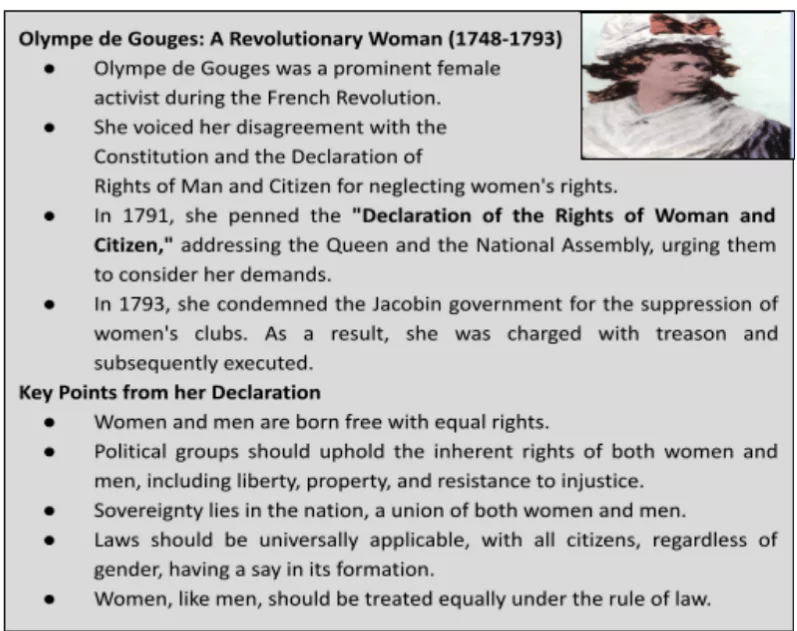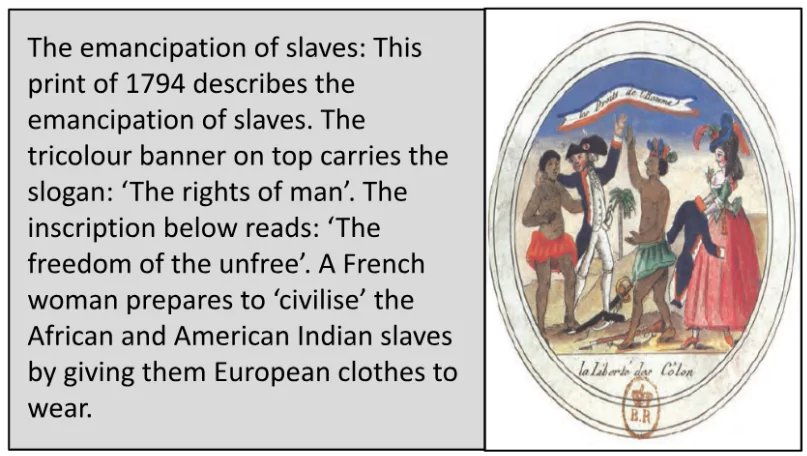![]() 19 Jul 2024
19 Jul 2024
From the onset of the French Revolution, women were fervently involved in transformative events of the French Revolution, driven by hope that their participation would lead to beneficial societal reforms. Women from the third estate predominantly had to work to sustain themselves. They were often relegated to domestic responsibilities like cooking, child-rearing, and fetching essentials. Despite their contributions, women typically received lower wages than men.
Political Clubs: Seeking to champion their causes, women established their political clubs and newspapers, with around sixty such clubs emerging across France.

Mandatory schooling for all girls was established.
Ongoing Struggle: Despite these advancements, pursuit of equal political rights remained an uphill battle.
One of the most revolutionary social reforms of the Jacobin regime was abolition of slavery in French colonies. The colonies in Caribbean Martinique, Guadeloupe, and San Domingo were important suppliers of commodities such as tobacco, indigo, sugar, and coffee.
 Slavery and the French Revolution: During the 18th century, there was a conspicuous absence of criticism towards slavery in France.
Slavery and the French Revolution: During the 18th century, there was a conspicuous absence of criticism towards slavery in France.Post 1789, revolutionary governments in France made sweeping changes, attempting to embody principles of liberty and equality in daily life.
| Must Read | |
| Current Affairs | Editorial Analysis |
| Upsc Notes | Upsc Blogs |
| NCERT Notes | Free Main Answer Writing |
Napoleon Bonaparte ascended to power in 1804, crowning himself Emperor of France. With ambitions of modernizing Europe, he implemented significant reforms, such as the protection of private property and the introduction of the decimal system. Initially hailed as a liberator, Napoleon’s expanding conquests eventually cast him in the light as an invader. His reign, however, came to an end with his defeat at the Battle of Waterloo in 1815. Spirit of revolution reached beyond European borders. Figures like Tipu Sultan and Rammohan Roy drew inspiration from these revolutionary concepts.
|
Related Articles |
|

<div class="new-fform">
</div>